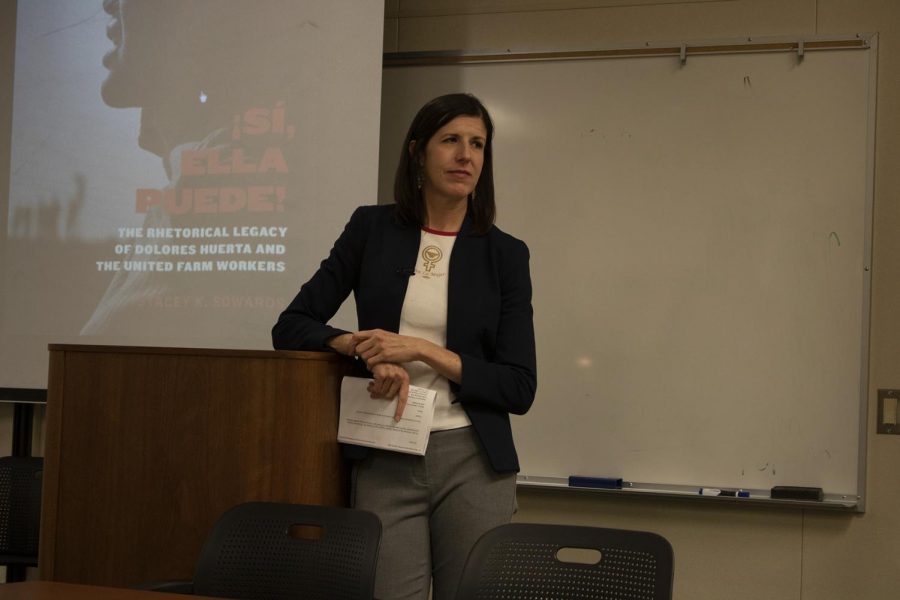Discussing the life and legacy of farm worker activist Dolores Huerta
Stacey K. Sowards presented her new book on the legacy of Dolores Huerta titled “¡Si Ella Puede! The Rhetorical Legacy of Dolores Huerta and The United Farm Workers”.
April 26, 2019
Bakersfield College hosted a discussion on “Si, Ella Puede! The Rhetorical Legacy of Dolores Huerta and United Farm Workers” in honor of Dolores Huerta day in the Levan Center on April 10.
During the discussion Dr. Stacey K. Sowards, professor and chair of Department of Communication at the University of Texas El Paso discussed her book, “Si, Ella Puede!” which explored Huerta’s activism by close examination of the activist’s speeches, letters, and interviews.
At the beginning of the discussion Sowards spoke about the difficulties of writing a book and the hardships that came with it.
“I don’t really enjoy the writing process, even though I’m a professor and that’s a big part of what I do as an academic,” Sowards said.
She spoke of the defining moment that sparked her interest in writing about Dolores Huerta.
She mentioned how her writing journey began 20 years ago when she moved to Detroit, Michigan and attempted to use some of Huerta’s work to speak at a conference to only realize much of her work was not documented as much as Cesar Chavez’s, someone who Huerta worked side by side with.
Sowards continued with the historical context of the United Farm Workers (UFW) movement and the role Huerta played by highlighting the first chapter of her book.
“Agricultural expansion especially in the state of California, was spent at the earliest part of the twentieth century,” she said.
Sowards discussed the passage of the National Labor Relations Act in 1935, which allowed workers’ rights and the right to unionize but it excluded a farm worker’s ability to unionize.
It made way for the UFW because farm workers were not being protected by the law.
As she ran down historical moments leading to the UFW, Sowards began to touch base on Huerta’s life and upbringing.
Huerta was born in 1930 on April 10, and at the age of 89 today, Huerta is still very active in the farm workers movement and a local Bakersfield resident.
“She had a very influential mother and a very influential grandfather, they were very significant in her life,” Sowards continued.
“That’s important because she talks a lot about how they inspired a lot of that social justice cause and spirit that she developed as a young adult.”
As the talk went on, Sowards continued to highlight main parts of Huerta’s life and the key parts that played a main role in writing her book about the legacy and life of Dolores Huerta ending the discussion by answering a few questions.





